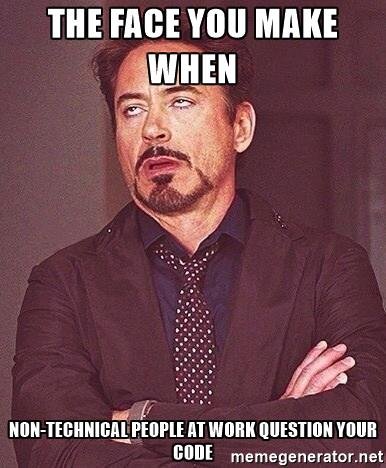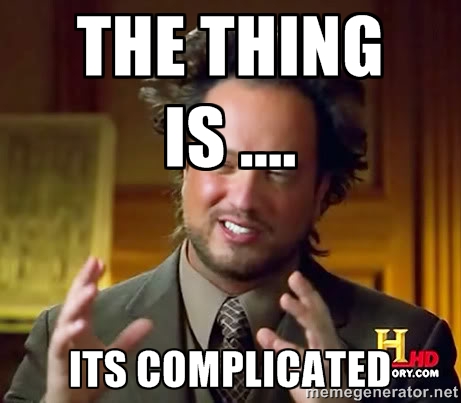A framework for evaluating Cryptos and ICOs
With ICO funding like:

I'm starting with my framework for evaluating ICOs. While its absolutely the way to go on the business side, I realize that I'm completely non-technical and so need to follow the advice of technical people. Generally this results in:

so I just pick who I think the smartest technical person is and assume they're close to right. I evaluate this based on the mantra of "strong opinions loosely held". If I ask you something and you have a strong opinion, but are willing to change it when someone else (usually not me) presents a better argument - I assume you know what you're talking about.
Digression aside, my framework for evaluation (sorry to get overly MBA-y, but that's what I do):
1. Team: are they strong both technically and from a business point of view? Building a business is hard (I get it, so is effective coding) and you need someone who knows how to overcome all the hurdles associated with it. For those of you who say it's easy - why haven't you done it?
2. Problem: what real world problem is this purporting to solve and does the purported solution actually matter (it's extraordinarily common for people to solve problems that don't actually exist - another way of saying that the solution doesn't actually matter)? Solving the word's most challenging problems doesn't matter if no one cares about the solution.
3. Why the blockchain: Is this a problem where the blockchain (and other tech like the tangle) are actually improving things? Just because you can use the blockchain doesn't mean you should.
4. Alternatives and substitutes: What are the alternatives and substitutes to this proposed solution (both within and outside the crypto space)? Are these substitutes solving the problem in a better way? The widespread adoption of bitcoin makes it far superior to potcoin for any purchase, including marijuana.
5. Structure and Valuation: How much of the ICO valuation is the founding team taking, how much is being saved for future team members, how much is being distributed to investors? Given the amount raised and the percentage of tokens sold - is the valuation being given reasonable? Hint - the answer is always 'no' by traditional VC standards. While I understand the need to adjust thinking from traditional standards, it still absolutely blows my mind that ideas with little more than a whitepaper and a product roadmap can be valued in the hundreds of millions of dollars.
And that's it. Well sort of.

Really evaluating something along these lines is far more complicated than it initially seems. People don't spend years studying 'business' for nothing (though I admit the partying and lack of actual grades makes it a pretty fun time).
In future posts I'll dive more deeply into each of the 5 pieces of the framework (I may even change the framework if enough people challenge me and provide good alternatives). I'll update this post as I go along with links to the new posts.
Congratulations @riverfish! You have completed some achievement on Steemit and have been rewarded with new badge(s) :
Click on any badge to view your own Board of Honor on SteemitBoard.
For more information about SteemitBoard, click here
If you no longer want to receive notifications, reply to this comment with the word
STOP